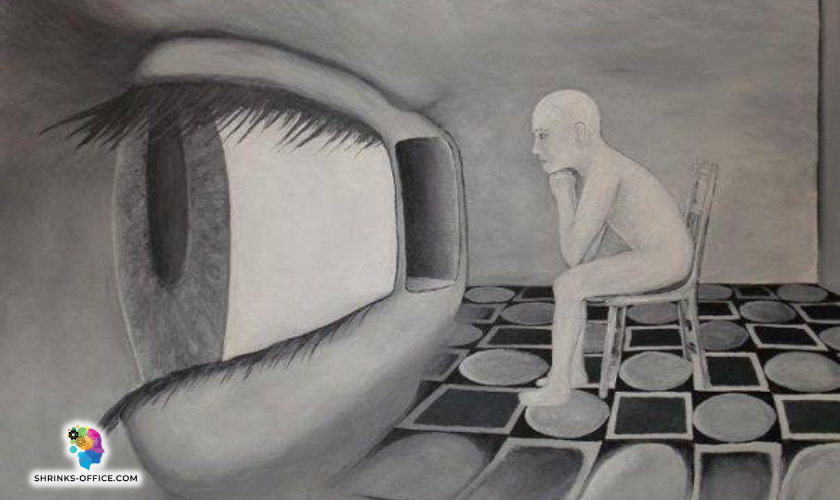In today's fast-paced world, finding moments of mindfulness can be a challenge. Embracing "The Power of Now"...

Dissociation can be a challenging experience, especially the one that happens at work. Are you experiencing dissociation? This article explores what dissociation is, how it manifests at work, its coping strategies, and the next steps to address this disorder effectively.
Dissociation refers to a psychological phenomenon characterized by a disconnection between feelings, behaviors, thoughts, memories, or one’s sense of self. While getting lost in thought is common, dissociation becomes even more concerning when it is unintentional and distressing [1].
Traumatic experiences like abuse or neglect often underly dissociation as a protective mechanism where the mind separates from the body to cope with threats.
Managing dissociation at work is important for your productivity and general well-being. Below are some coping strategies:
1. Deep breathing: Any time you experience dissociation, practice diaphragmatic breathing to regulate your nervous system. Take slow, deep breaths that engage your diaphragm. This can help change your feeling and mood [2].
2. Cold water: Splashing cold water on your face can help you reconnect with your body and surroundings [2].
3. Mental-based approaches: Engaging in mental activities like listing countries, animals, or colors, or describing familiar tasks in detail to anchor yourself in the present moment [2].
4. Grounding techniques: You can use techniques like the 5-4-3-2-1 exercise to engage your senses and re-establish a connection with your surroundings. This technique involves identifying five things you can see, four things you can hear, three things you can touch, two things you can smell, and one thing you can taste [2].
5. Self-soothing: You can also manage dissociative disorder by creating a self-soothing toolkit that includes items such as your favorite tea, stress-relief toys, aromatherapy tools, or a calming playlist. Getting enough sleep can also help [2].
However, awareness is the first step to address dissociation. Knowing when you are experiencing dissociative states is important. Experimenting with these coping skills to determine which one works best for you is also suggestive. If you continue to struggle, consider seeking support from a mental health professional who can provide guidance and professional interventions [2].
Dissociation can occur at any place including the workplace. The signs of dissociation at work include:
1. Zoning out during conversations and meetings.
2. Losing track of time during work hours.
3. Neglecting meals due to being unable to recognize thirst or hunger.
4. Difficulty getting along with co-workers.
5. Poor stress management or forgetfulness, especially in a high-pressure work environment.
Office dynamics, poorly managed stress, and unresolved trauma can contribute to dissociation, even if you are not aware of the connection. Work-related stress affects a significant portion of the workforce, and the blending of work and home environments in the era of remote work may worsen this issue [3].
The following are some of the types of dissociative disorders there is:
1. Depersonalization: This is when one feels disconnected from their own body, it is often described as an out-of-body experience [4].
2. Derealization: This is a sense that the surroundings aren’t real, akin to being in a dream where people and objects may appear distorted or unreal [4].

Dissociation may leave you feeling disconnected from reality, experiencing a blurred sense of identity or struggling with memory lapses.

Dissociative Identity Disorder is one of the most complex disorders. It used to be known more commonly as multiple personality disorder. This name, however, led people to believe that it is a personality disorder, but it is not (resulting in the name change). The major and most common symptom of this disorder is a change in identity [5].
Those with dissociative identity disorder usually have different identities that are in control of the body and mind at different times. They are likely to experience dissociative amnesia and may also experience symptoms of depersonalization disorder. They may notice the other identities or may lose chunks of time without knowing why [5]. They may, however, suffer from borderline personality disorder, affective disorders, bipolar disorder, and anxiety disorders.
Dissociative identity disorder is very rare. The disorder affects only between 0.01 and 1% of the population. It can occur at any age and people assigned female at birth are more likely than people assigned male at birth to have this disorder [5].
A person with dissociative identity disorder has two or more distinct identities. The “core” identity is their usual personality. Their alternate personalities are called “Alters”. People with DID may have up to 100 alters [6].
Alters are always very different from one another. The identities might have different ethnicities, genders, interests, and ways of interacting with their environments [6].
Other common signs and symptoms of dissociative Identity Disorder include:

DID may occur as a result of physical or sexual abuse during childhood or adolescence. It may also develop in response to a natural disaster or other traumatic events like combat or underlying health conditions. The disorder is a way to detach or distance oneself from the trauma [7].
There is not a single test through which DID can be diagnosed. A therapist will review your symptoms and your personal health history. They may also perform tests to rule out underlying physical causes for your symptoms, such as brain tumors or head injuries [8].
Dissociative symptoms often show up in childhood, between the ages of 5 and 10 due to past traumas. But their parents, teachers, or healthcare providers may miss the signs. Dissociative Identity Disorder might be confused with other learning or behavioral problems common in children, such as attention deficit hyperactivity disorder (ADHD). For this reason, Dissociative Identity Disorder is usually not diagnosed until adulthood [8].
The best choice for treating dissociative identity disorder according to the treatment guidelines issued by ISSTD (International Society for the Study of Trauma and Dissociation) is Individual Psychotherapy. But just because one-to-one therapy is demonstrably highly effective, it does not mean that it will happen automatically.
In many areas of the UK, people have battled unsuccessfully with the NHS to get the therapy they need, and so rather than starting over, people with dissociative disorders may spend many years in a treatment wilderness, receiving little or no help.
How do I get help for dissociative disorder? This is the most frequently asked question from people with dissociative disorders. Treating dissociative disorders aims to reconnect you with your feelings, memories, and thoughts to help you feel more complete and real as a person.
If you suspect you have a dissociative disorder the first port to call should be your GP. They will be able to refer you to mental health professionals who can go through your treatment options. If you find it difficult to remember what you talk about at appointments like this, you may find it helpful to take someone along with you.
However, make sure to go with someone you trust, especially family members. They can keep track of appointments and ensure that you attend important meetings. In terms of the treatment you may be offered, psychotherapy and talking therapies as the best options. Finding out the underlying cause of your dissociation is very crucial, as is learning to recognize your symptoms and deal with traumatic stress.
There may be different techniques used during your therapy sessions including cognitive therapy to help you change negative thought patterns into healthy ones and hypnosis to help you remember your past better. Creative art therapy can be helpful too, especially for those who have difficulty expressing themselves.
Eye movement desensitization and reprocessing (EMDR) is also recommended to help those dealing with integrating traumatic memories, however, standard EMDR is not likely to help those with dissociative disorders. EMDR for those with dissociative disorders should be adjusted to focus on specific memories for shorter periods. It should only be used if the person is feeling emotionally stable and by professionals who know about dissociative disorders.
Dissociation treatment is therapist-based. While there is no medication for dissociative disorders, your doctor may recommend medication that can help you cope with your symptoms such as depression and other mental health conditions. If you have dissociative identity disorder, you should only take medication like this if the symptoms are experienced by your dominant identity.
When it comes to seeking professional help, ensure you speak to someone who has experience in dealing with dissociation. The related disorders can be really complex and difficult to treat and therefore may require a long-term treatment plan. For this reason, finding someone you feel you can trust or are comfortable with will help you.
Just like other mental disorders, coping with dissociation at work involves understanding its causes, recognizing its signs, and implementing effective strategies to stay present and engaged in your professional life. Your well-being is paramount, and taking steps to address dissociative disorder can lead to a more fulfilling work experience.
Dissociative disorders involve disruptions or breakdowns of memory, consciousness, awareness, identity, and/or perception.
Symptoms like memory lapses, confusion, and identity shifts can impact concentration, productivity, and interpersonal interactions at work.
Accommodations may include flexible work hours, frequent breaks, written instructions, a quiet workspace, and access to mental health support resources.
Disclosure is a personal decision. Consider the potential benefits, such as accessing accommodations and support, weighed against concerns about stigma and discrimination.
Techniques like grounding exercises, mindfulness, maintaining a structured routine, and seeking support from colleagues or a therapist can help manage dissociative episodes at work.
In today's fast-paced world, finding moments of mindfulness can be a challenge. Embracing "The Power of Now"...
In our fast-paced world, finding moments of tranquility can be a challenge. Meditation apps offer a convenient...
In our fast-paced world, taking time for self-reflection and mindfulness is essential for well-being. Journaling can be...
In today’s fast-paced world, managing stress has become an essential aspect of maintaining overall well-being. Two popular...
Dissociation can be a challenging experience, especially the one that happens at work. Are you experiencing dissociation?...
Bionic reading transforms the reading experience for ADHD individuals by guiding the eyes for focus and understanding. Dive into the world of bionic reading.
Explore the complexities of postpartum depression and genetics in our blog 'Is Postpartum Depression Hereditary?' for insights into maternal mental health.
